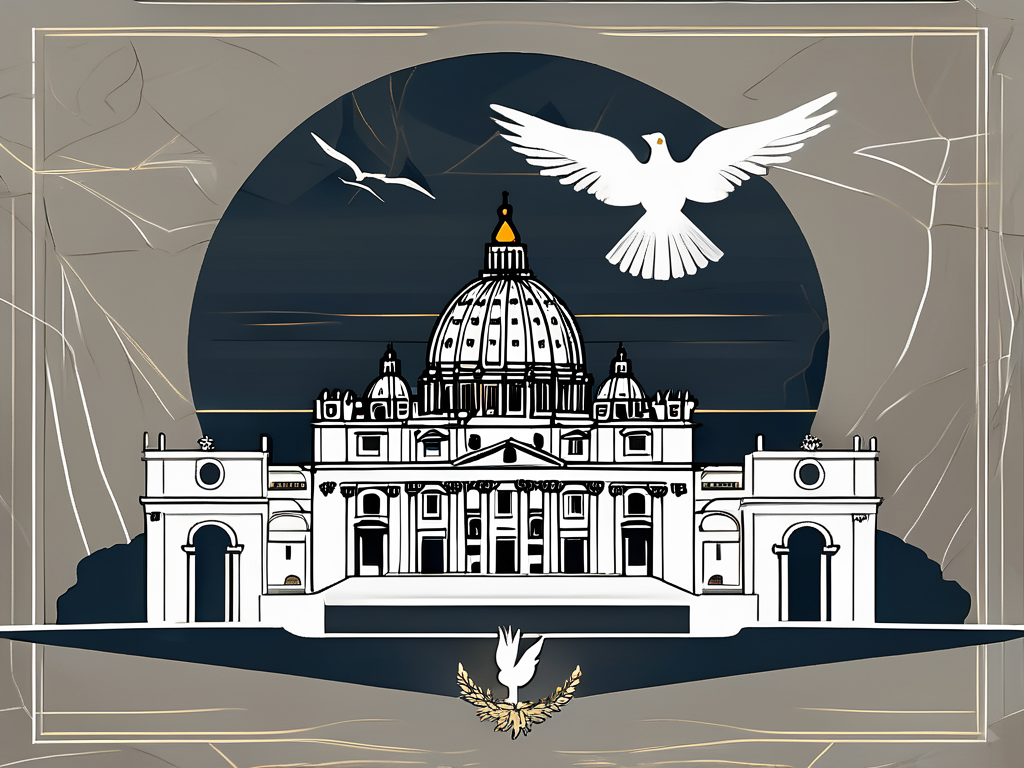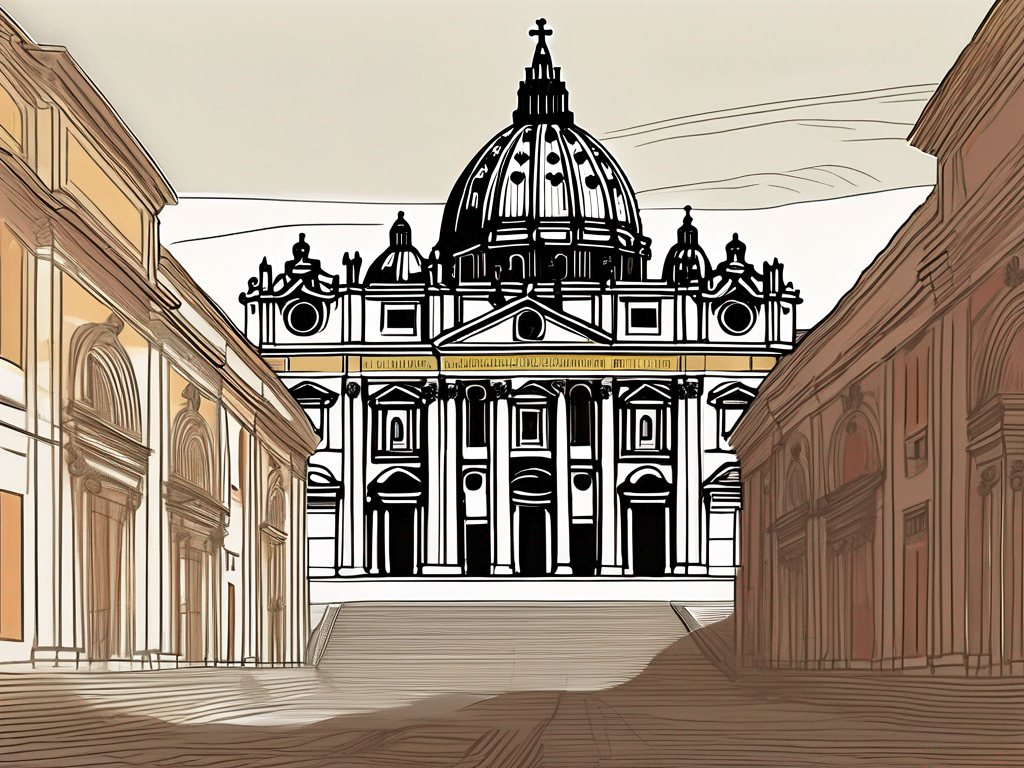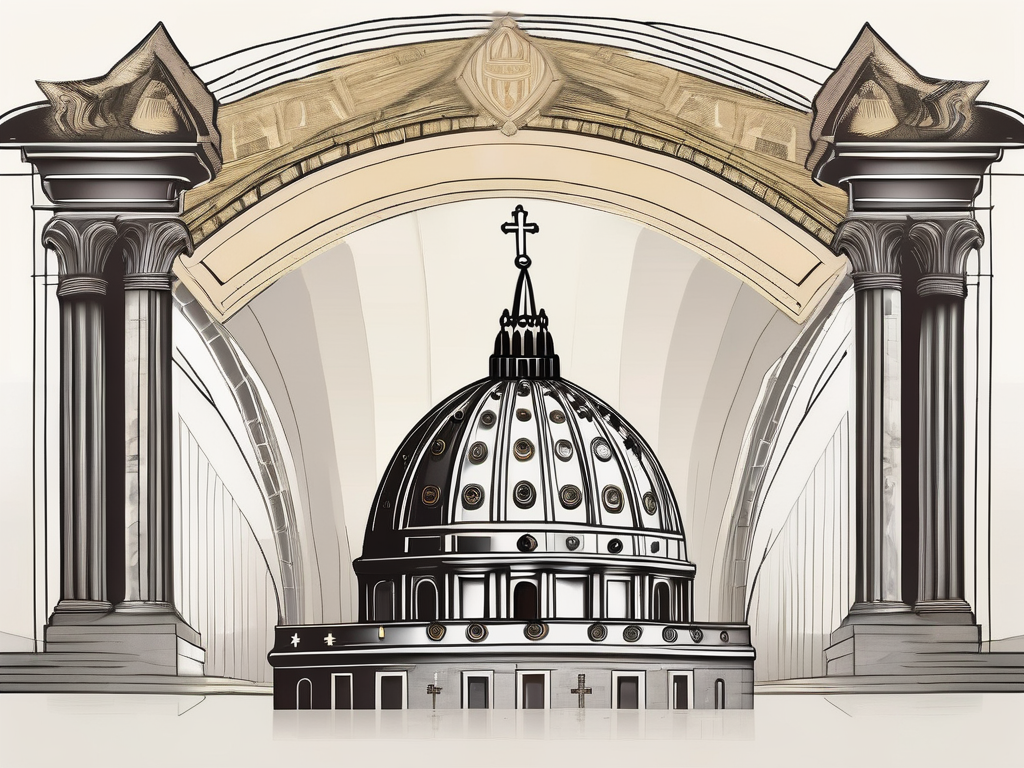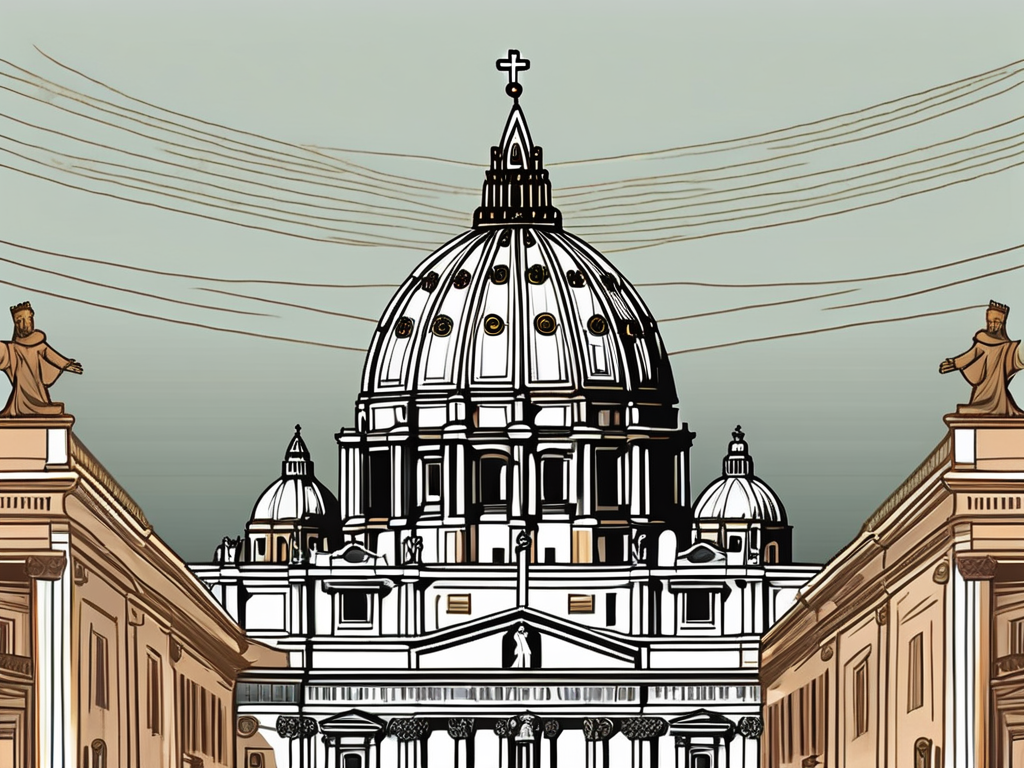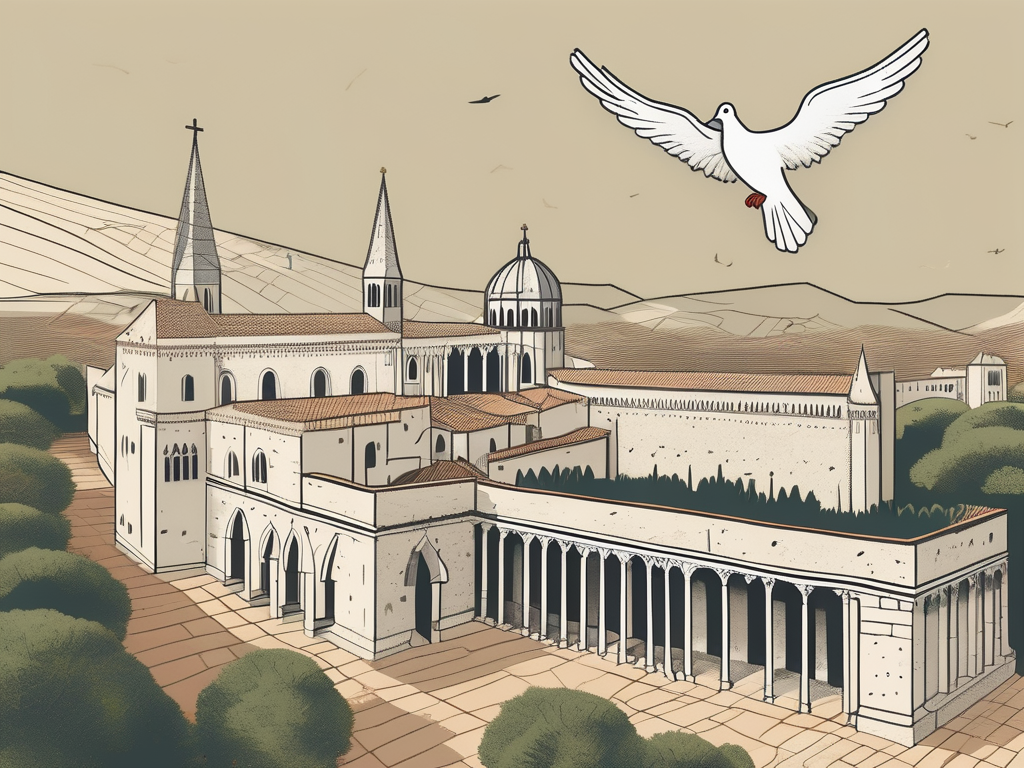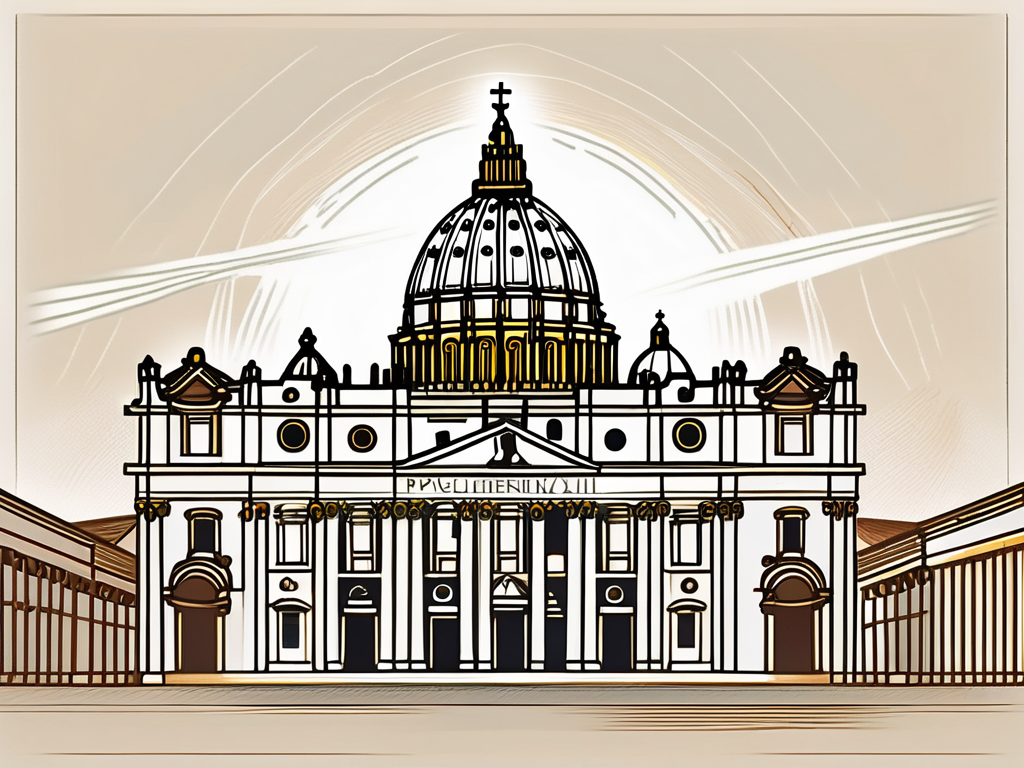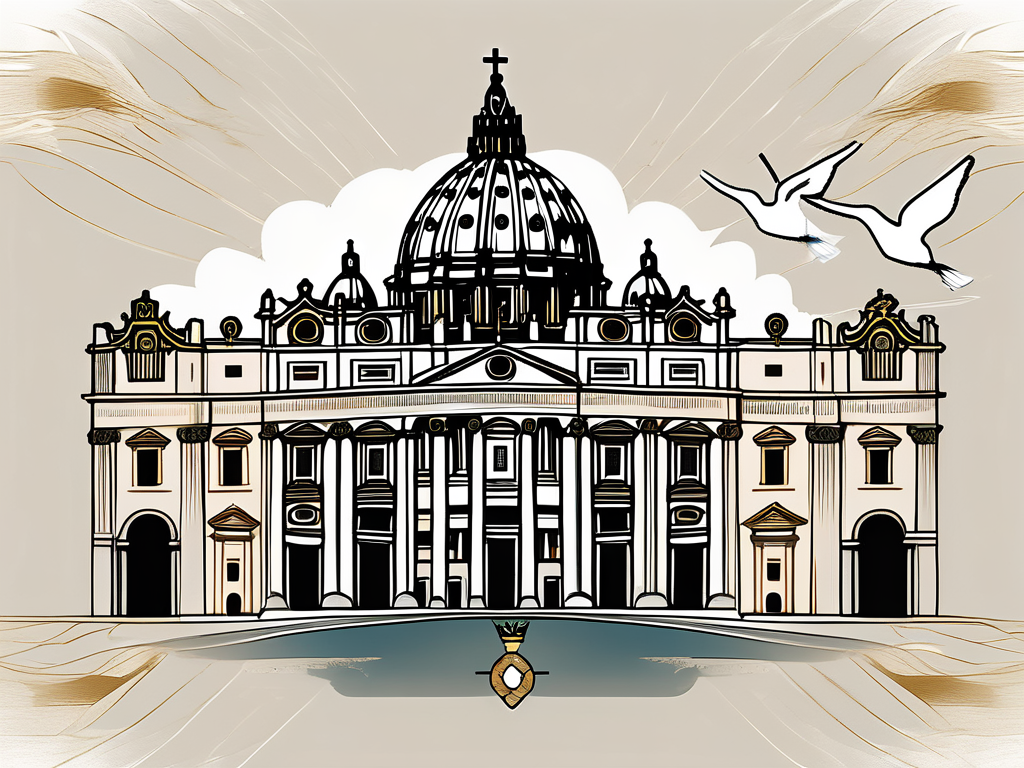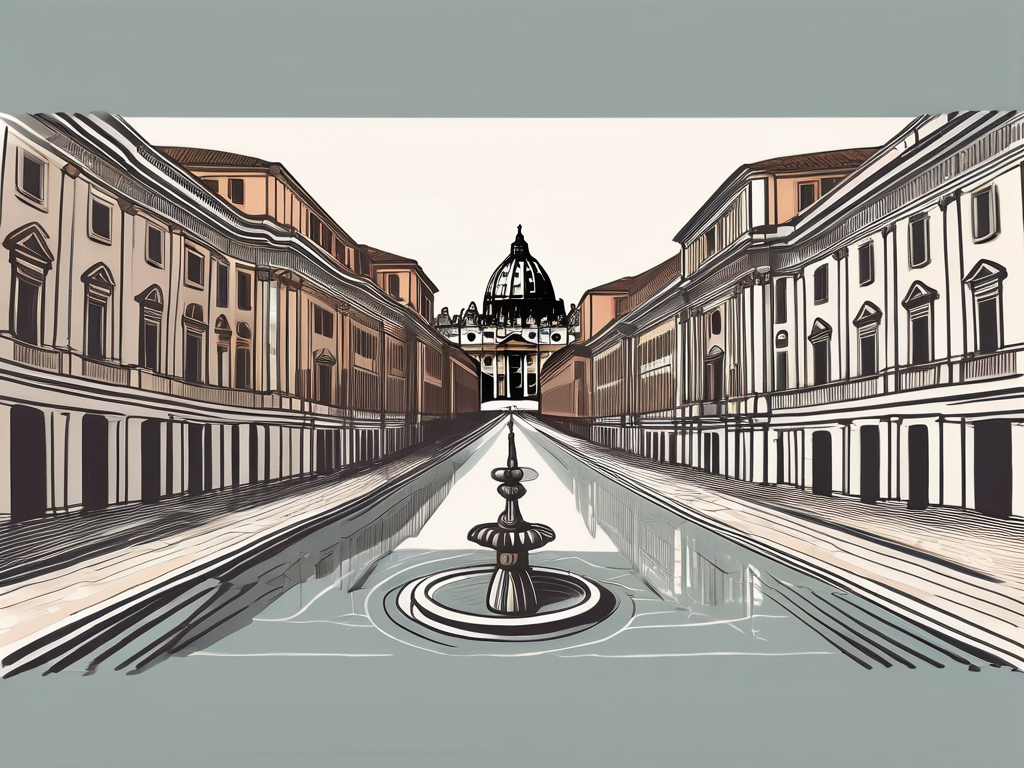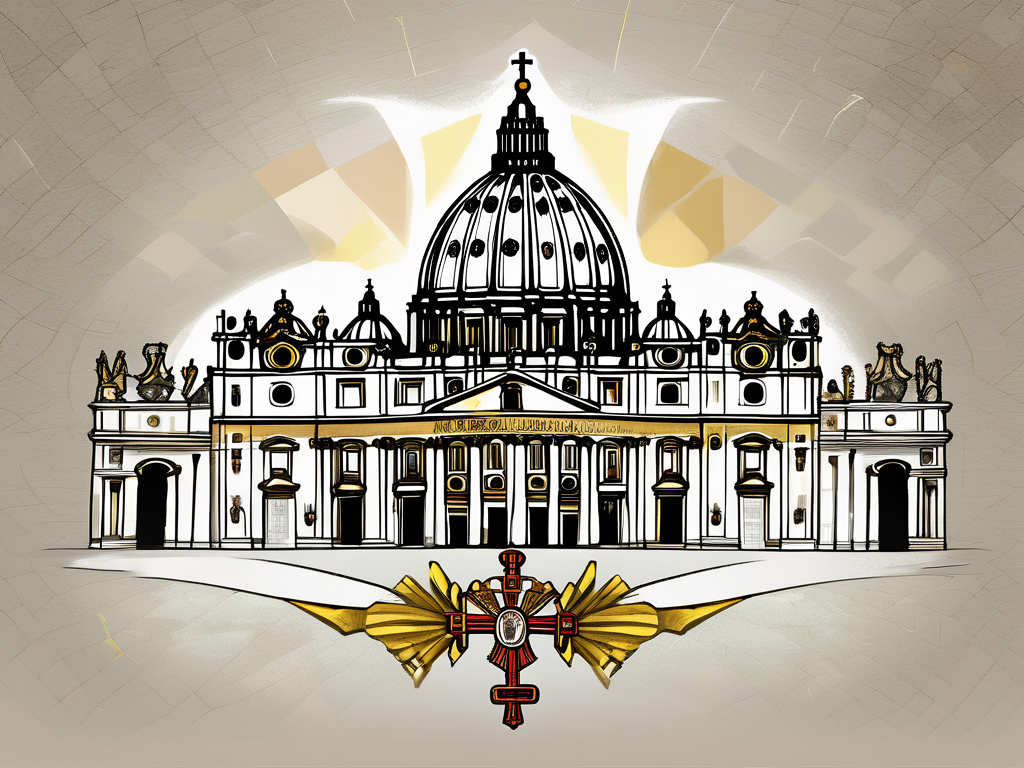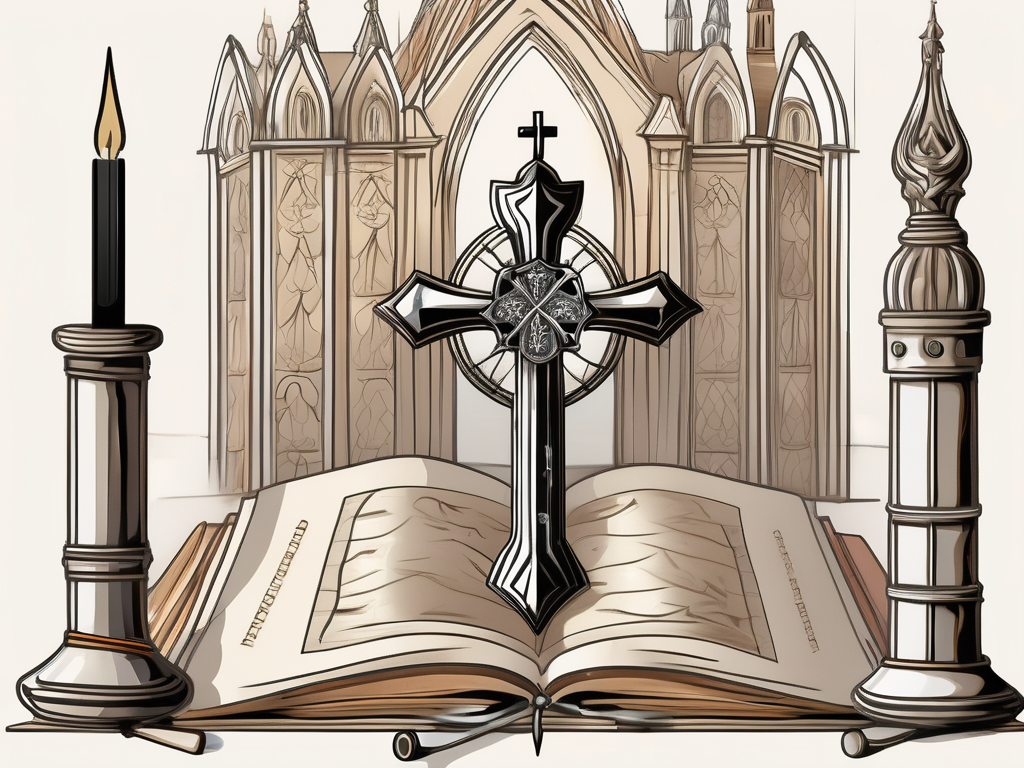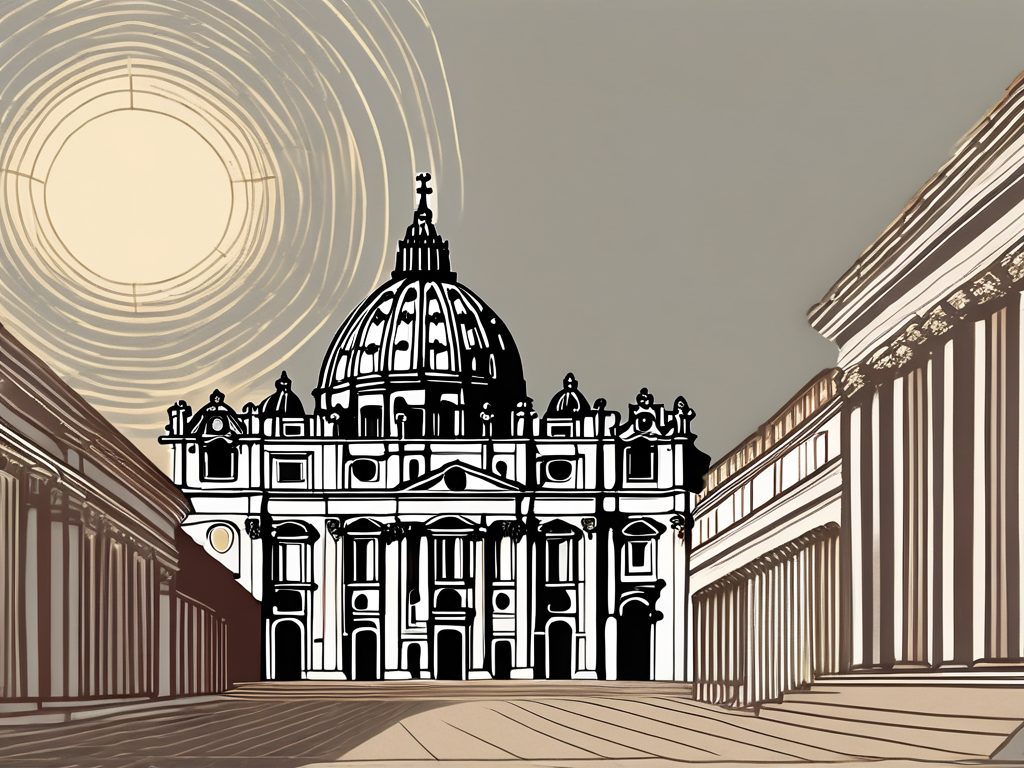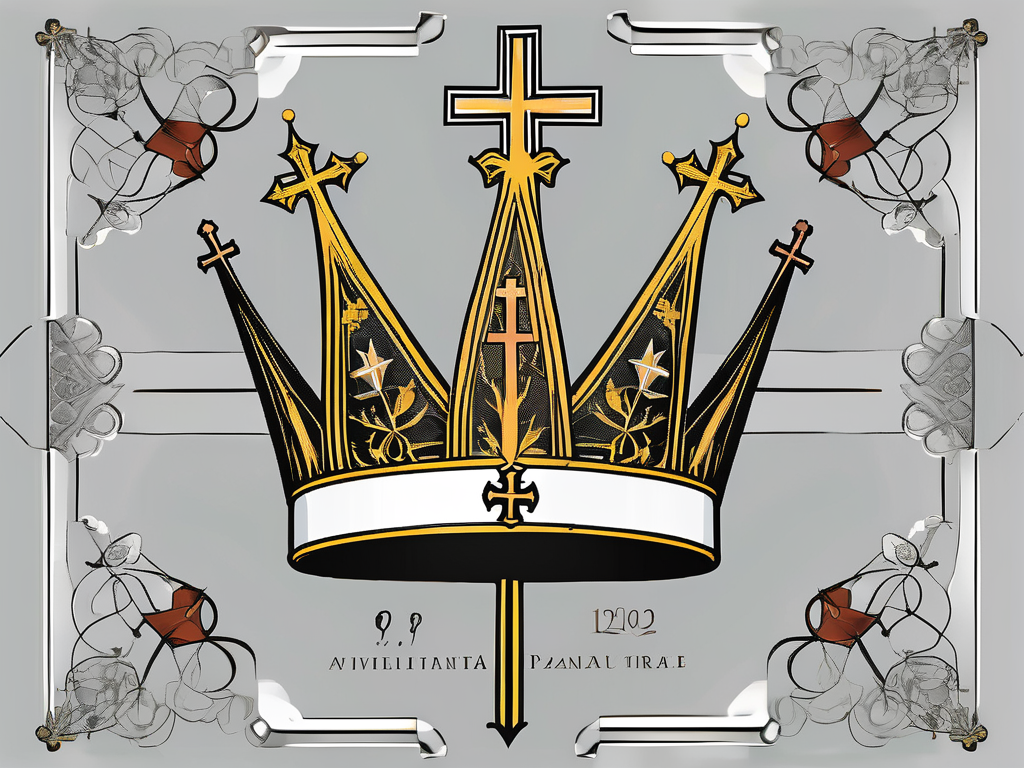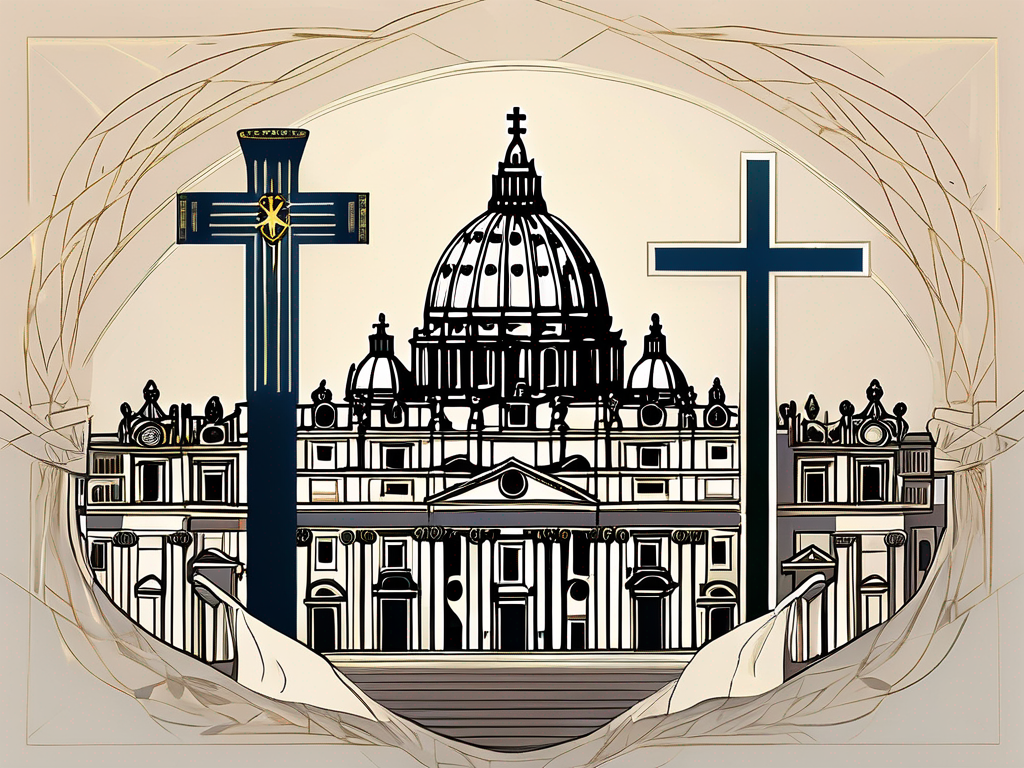Pope Clement IX, born Giulio Rospigliosi, lived a remarkable life that left a lasting impact on the Catholic Church and the world. From his humble beginnings to his influential papacy, his contributions and controversies shaped his legacy. Let’s journey through the life of this fascinating Pope and discover the mark he left on history.
Early Life of Pope Clement IX
Born into a noble family on January 28, 1600, in Pistoia, Italy, Giulio Rospigliosi had a promising future ahead of him. His family background and upbringing played a crucial role in shaping his character and aspirations.
Birth and Family Background
Giulio was born into a family of esteemed lineage, associated with the powerful Medici family. This connection to influential figures exposed him to a world of politics and diplomacy from a young age, fueling his ambitions and providing a solid foundation for his future endeavors.
Growing up in the midst of the Renaissance, Giulio’s family was deeply involved in the arts and sciences. Their patronage of artists and scholars allowed him to witness firsthand the transformative power of human creativity. This exposure to the intellectual and cultural movements of the time would later influence his papacy, as he sought to promote and support the arts and sciences.
Furthermore, Giulio’s family was known for their philanthropic efforts, particularly in the field of education. They established schools and libraries, ensuring that knowledge was accessible to all, regardless of social status. This emphasis on education and equal opportunity left a lasting impression on young Giulio, shaping his belief in the importance of knowledge and its ability to empower individuals and societies.
Education and Early Influences
Giulio’s parents recognized his intellect and nurtured his education, ensuring he received the best possible training. He studied at the Jesuit College in Rome, immersing himself in the world of theology and philosophy. These early studies would shape his future perspectives as Pope.
At the Jesuit College, Giulio encountered renowned scholars and theologians who broadened his understanding of the world and its complexities. He delved into the works of ancient philosophers, such as Aristotle and Plato, as well as contemporary thinkers who were challenging traditional beliefs and pushing the boundaries of knowledge. This exposure to diverse ideas and intellectual debates honed his critical thinking skills and instilled in him a desire for intellectual exploration.
Moreover, Giulio’s time at the Jesuit College provided him with a strong spiritual foundation. The rigorous religious education he received deepened his faith and nurtured his sense of vocation. He felt a calling to serve God and his fellow human beings, which would ultimately lead him to the path of priesthood and, eventually, to the papacy.
Outside of his academic pursuits, Giulio also developed a passion for music during his time at the Jesuit College. He learned to play various instruments and even composed his own pieces. This love for music would remain with him throughout his life, becoming an integral part of his papal reign as he embraced the power of music to uplift and inspire.
In conclusion, Giulio Rospigliosi’s early life was marked by a privileged upbringing, exposure to influential figures, and a comprehensive education. These formative experiences shaped his character, instilled in him a sense of purpose, and laid the foundation for his future role as Pope Clement IX.
Ascension to Papacy
After years of dedication and service to the Church, Giulio’s talents were recognized, leading him on a path to the highest office in the Catholic Church.
Giulio’s journey to the papal throne was a remarkable one, filled with dedication, knowledge, and political astuteness. It all began in 1667 when he was ordained as a priest, marking the start of his remarkable rise through the ranks of the Church hierarchy.
With his profound knowledge of theology and his ability to navigate the complex political landscape, Giulio quickly caught the attention of Pope Alexander VII. Recognizing his exceptional talents, Pope Alexander VII appointed him as a Cardinal in 1657, a position of great influence and responsibility within the Church.
However, fate had even greater plans for Giulio. After the death of Pope Alexander VII in 1667, his peers recognized Giulio’s exceptional qualities and elected him as the successor to the papal throne. With great humility and reverence, Giulio accepted this immense responsibility and took on the name Pope Clement IX.
Journey to the Papal Throne
Giulio’s journey to the papal throne was not merely a result of chance or luck. It was a testament to his unwavering commitment to the Church and his relentless pursuit of knowledge and wisdom. Throughout his years of service, Giulio immersed himself in the study of theology, delving deep into the teachings and doctrines of the Catholic faith.
His dedication and thirst for knowledge were evident in his rapid rise through the Church hierarchy. Giulio’s profound understanding of theology, combined with his ability to articulate complex ideas, earned him the admiration and respect of his peers. His reputation as a brilliant theologian and scholar spread far and wide, reaching the ears of Pope Alexander VII.
Recognizing Giulio’s exceptional talents, Pope Alexander VII appointed him as a Cardinal, entrusting him with important responsibilities within the Church. As a Cardinal, Giulio’s influence extended beyond the confines of the Church, allowing him to navigate the intricate web of political alliances and rivalries that characterized the era.
Giulio’s journey to the papal throne was not without its challenges. The Catholic Church faced numerous internal and external pressures during this time, and it was up to Giulio to navigate these treacherous waters with wisdom and grace.
Challenges and Triumphs
Pope Clement IX faced numerous challenges during his papacy, but his resolve and wisdom allowed him to overcome them. One of his notable achievements was his efforts to reconcile Catholic and Protestant factions. Recognizing the need for unity and understanding, Pope Clement IX embarked on a diplomatic mission to bridge the divide between these two religious groups.
His diplomatic skills and unwavering commitment to dialogue earned him respect, not only within the Church but also among world leaders. Pope Clement IX became a trusted mediator, sought after by kings and emperors who sought his guidance in resolving conflicts and fostering peace.
Under Pope Clement IX’s leadership, the Catholic Church experienced a period of stability and growth. His papacy was marked by a renewed focus on education and the arts, with numerous schools and cultural institutions being established under his patronage.
Throughout his papacy, Pope Clement IX remained a humble servant of God, dedicated to the well-being of the Church and its followers. His legacy as a compassionate and wise leader continues to inspire generations of Catholics to this day.
Major Contributions as Pope
Pope Clement IX left an indelible mark on the Catholic Church and society as a whole through his various contributions.
Diplomatic Achievements
Known as a skilled diplomat, Pope Clement IX played a significant role in mediating disputes and fostering peace among warring nations. His tireless efforts led to diplomatic successes that helped restore stability and harmony within Europe.
Religious Reforms and Decisions
Pope Clement IX’s papacy coincided with a time of significant religious challenges. However, he implemented reforms that aimed to fortify the Catholic Church and reclaim its relevance in a changing world. His decisions regarding theological matters and Church governance left a lasting impact on the faithful.
Pope Clement IX and the Arts
Aside from his religious contributions, Pope Clement IX had a deep appreciation for the arts and recognized their power to inspire and uplift the human spirit.
Patronage of Baroque Art and Architecture
During his papacy, Pope Clement IX avidly supported the development of Baroque art and architecture. His patronage allowed talented artists, such as Gian Lorenzo Bernini, to flourish and create masterpieces that still captivate audiences to this day.
Influence on Literature and Music
Not only did Pope Clement IX embrace visual arts, but he also fostered and supported literary and musical endeavors. His love for poetry and music inspired many renowned composers and writers, leaving an enduring imprint on the cultural landscape of his time.
Controversies and Criticisms
As with any influential figure, Pope Clement IX faced scrutiny and controversy throughout his papacy.
Political Disputes
Due to the sensitive political climate of his time, Pope Clement IX found himself entangled in disputes between various European powers. Critics accused him of favoring certain nations, yet his adherence to diplomacy and impartiality proved his commitment to maintaining peace and stability.
Religious Conflicts
Religious conflicts and theological disagreements were inevitable during a period of religious turmoil. Pope Clement IX faced criticism from different factions within the Church, each advocating for their own interpretation of doctrine. Nonetheless, he remained steadfast in his commitment to unity and the preservation of Catholic teachings.
A Lasting Legacy
Pope Clement IX’s life and papacy had a profound impact on the Catholic Church and society as a whole. His commitment to diplomacy, religious reform, and the arts left an enduring legacy that continues to shape the world to this day.
As we reflect on the life and accomplishments of Pope Clement IX, we are reminded of the influence one person can have, even amidst the complexities of their time. His story serves as an inspiration, urging us to use our talents and passions for the betterment of humanity and the preservation of our shared cultural heritage.
